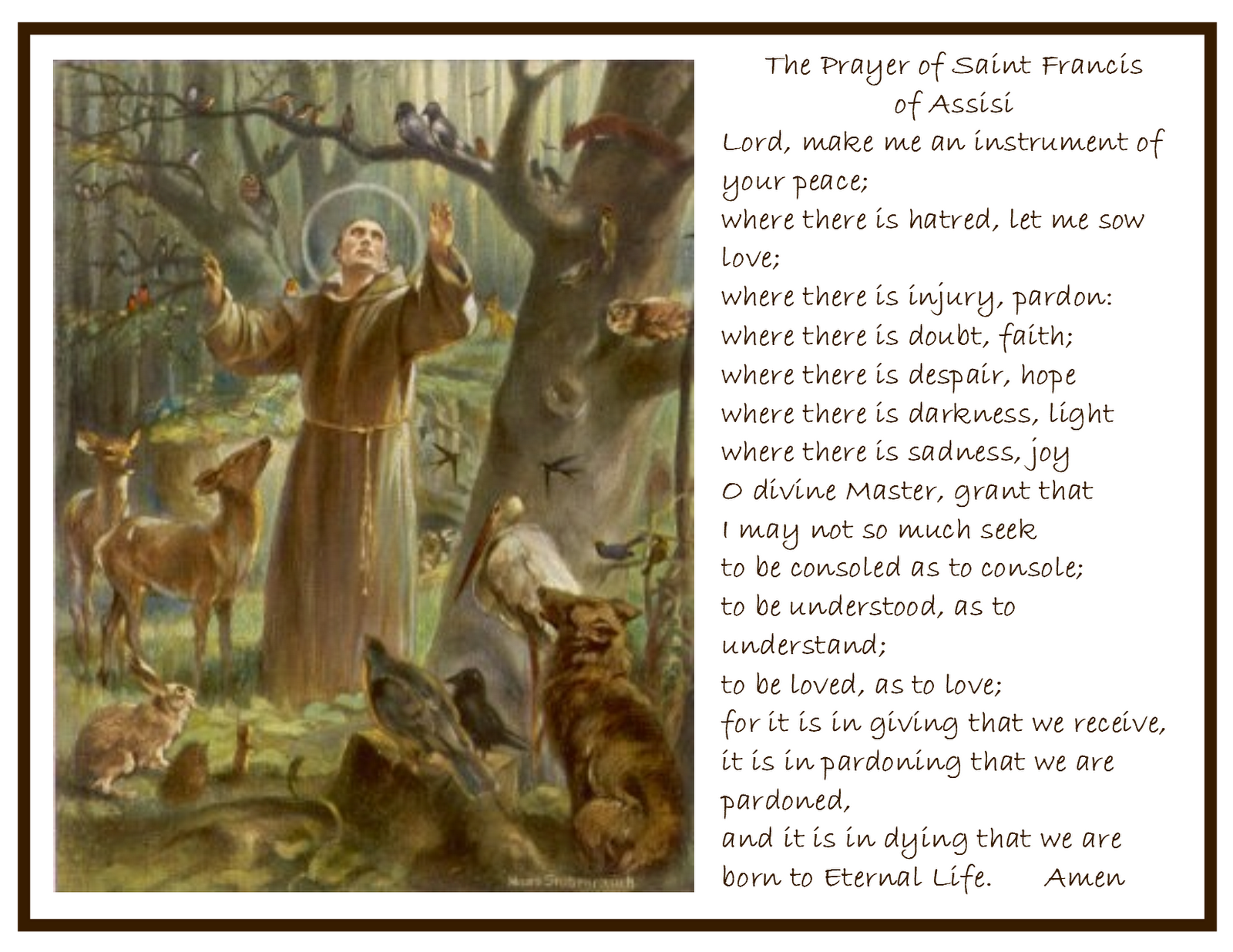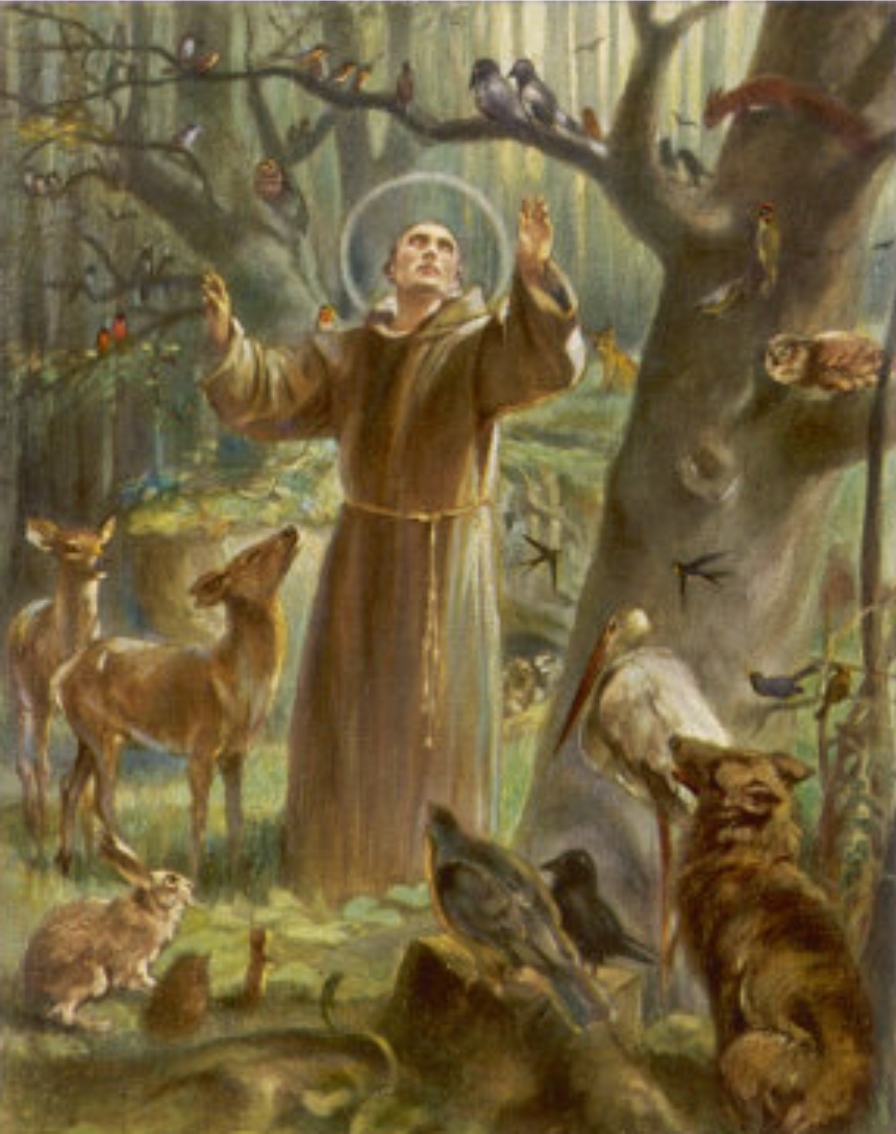
Have you ever found yourself curious about the identity of the patron saint of animals and ecology? Allow me to introduce you to St. Francis of Assisi, an extraordinary figure whose life and teachings resonate with countless individuals around the world even today. Born in the late 12th century in Italy, St. Francis is much more than just a saint; he embodies the ideals of peace, humility, and a profound connection to the natural world. His love for all living creatures and his commitment to environmental stewardship have made him a beloved symbol for those advocating for animal rights and ecological preservation. Through his actions and messages, St. Francis encourages us to appreciate the beauty of nature and to live harmoniously with all forms of life. His legacy serves as a reminder of our responsibility to care for the Earth and its inhabitants, inspiring generations to embrace compassion and stewardship.
Early Life: From Wealth to Spiritual Awakening

Birth and Background
St. Francis of Assisi was born in the year 1181 in the picturesque town of Assisi, located in Italy. He was the son of Pietro di Bernardone, a prosperous cloth merchant, and his mother, Pica, is believed to have had French ancestry, which may have played a significant role in shaping his early experiences and worldview. Initially, he was given the name Giovanni, but his father, inspired by his admiration for France, decided to rename him Francesco. This change in name not only reflected his father’s affection for the French culture but also set the stage for Francis’s unique identity. Can you imagine being named after an entire country, carrying that legacy with you throughout your life?
Life of Luxury
Growing up in an affluent household, Francis enjoyed a lifestyle characterized by opulence and indulgence. He was well-known for his vibrant personality, often reveling in the joys of parties and social gatherings, which made him a beloved figure among the youth of Assisi. His days were filled with entertainment, fine clothing, and the pleasures that wealth could provide. However, beneath this facade of happiness and abundance, Francis felt an emptiness that he could not quite articulate. Have you ever experienced a sense of longing or dissatisfaction, even when surrounded by comfort and luxury?
Turning Point: The War Experience
The year 1202 marked a significant turning point in Francis’s life when he decided to join the conflict between Assisi and Perugia. This choice led to his capture, and he spent nearly a year in captivity, where he was confronted with the harsh realities of life that starkly contrasted with his previous carefree existence. The experience of imprisonment was a profound shock to his system, forcing him to reevaluate his priorities and beliefs. Upon his release, he returned home only to be struck by a serious illness that further catalyzed his transformation. This period of suffering and introspection would ultimately lead him on a path toward spiritual awakening and a life dedicated to serving others.
The Spiritual Awakening

Visions and Revelations
After a period of recovery, Francis experienced a series of transformative moments that compelled him to reevaluate the choices he had made throughout his life. One particularly significant experience occurred while he was praying in a secluded grotto near Assisi. During this time of deep contemplation, he was granted a vision that profoundly impacted his spiritual journey. This moment served as a crucial turning point, gently guiding him toward a life devoted entirely to God and the service of others, marking the beginning of his commitment to a path of faith and humility.
Embracing Poverty
As his journey unfolded, Francis traveled to Rome, where he immersed himself in the lives of the beggars congregating at St. Peter’s Basilica. This eye-opening experience allowed him to witness firsthand the beauty that lies within humility and the vital importance of serving those in need. Through his interactions with the marginalized, he came to understand that genuine happiness and fulfillment are not derived from material wealth, but rather from a deep sense of spiritual richness that comes from selflessness and compassion.
The Call to Repair the Church
One of the most renowned episodes in Francis’s life took place at the chapel of San Damiano. In this sacred space, he heard a divine voice urging him to “repair my house.” Taking this command to heart, he made the bold decision to sell his father’s cloth in order to fund the necessary repairs for the chapel. This act of defiance led to a dramatic confrontation with his father, who was understandably upset by Francis’s actions. It is difficult to fathom the immense courage it required for Francis to stand firm in his beliefs, prioritizing his spiritual calling over familial expectations and societal norms.
Founding the Franciscan Orders

The Birth of a Movement
In the year 1209, a transformative figure named Francis laid the foundation for what would become the Franciscan Order. This new religious order was characterized by its profound commitment to a life marked by poverty, humility, and selfless service to others. Francis, with his remarkable charisma and unwavering dedication to his beliefs, quickly attracted a diverse group of followers who were inspired by his vision of living in a manner akin to that of Christ. They sought to embody the principles of love, compassion, and simplicity that Francis preached, thus igniting a movement that would have a lasting impact on the Christian faith.
Women in the Movement: The Poor Clares
Francis’s influence extended beyond men, as he actively encouraged women to participate in his mission of faith and service. In 1212, he played a pivotal role in the establishment of the Poor Clares, a groundbreaking religious order specifically designed for women. This order was dedicated to a life of poverty, prayer, and devotion, allowing women to pursue their spiritual calling in a society that often marginalized their contributions. The creation of the Poor Clares was revolutionary for its time, as it provided women with a respected and recognized path to live out their faith, thus expanding the reach and impact of Francis’s movement in profound ways.
St. Francis and Nature

A Patron of Animals and Ecology
St. Francis is often depicted surrounded by animals, symbolizing his deep connection to nature. He believed that all creatures are part of God’s creation and deserve respect and love. This belief led to his recognition as the patron saint of ecology by Pope John Paul II in 1979.
Teachings on Nature
His famous sermon to the birds exemplifies his love for nature. He viewed animals as brothers and sisters, deserving of compassion. Isn’t it refreshing to think of nature in such a loving way?
Legacy and Canonization

Canonization and Feast Day
St. Francis passed away on October 3, 1226, and was canonized just two years later, on July 16, 1228. His feast day is celebrated on October 4, a day dedicated to honoring his life and teachings.
Influence on Modern Spirituality
His teachings on poverty, humility, and love for creation continue to resonate today. Many people, regardless of their faith, find inspiration in his life. Isn’t it amazing how one person can impact so many lives across centuries?
Table: Key Events in the Life of St. Francis

| Year | Event |
|---|---|
| 1181 | Born in Assisi, Italy |
| 1202 | Captured in war and imprisoned |
| 1205 | Vision leads to spiritual awakening |
| 1209 | Founded the Franciscan Order |
| 1212 | Established the Poor Clares |
| 1226 | Died on October 3 |
| 1228 | Canonized by Pope Gregory IX |

St. Francis of Assisi’s life is a testament to the power of transformation and the importance of living in harmony with nature and others. His legacy encourages us to reflect on our values and consider how we can contribute to a more compassionate world. So, what can you do today to honor his teachings? Whether it’s caring for animals, helping those in need, or simply appreciating the beauty of nature, every little action counts!

